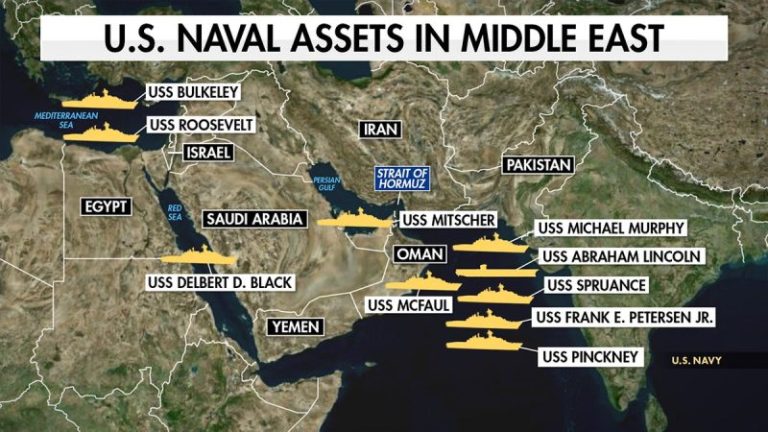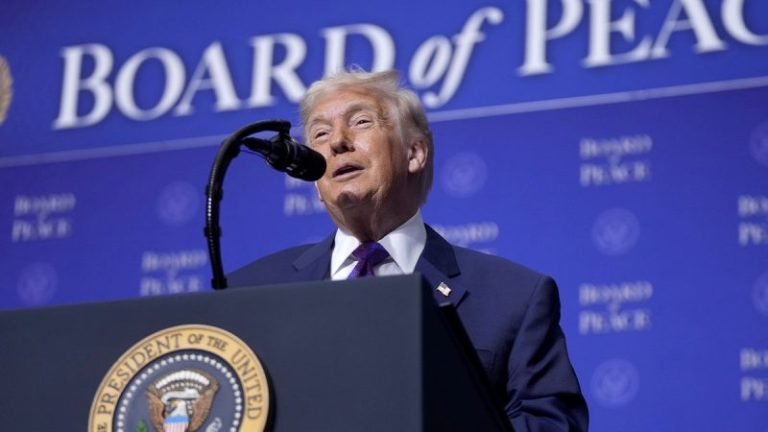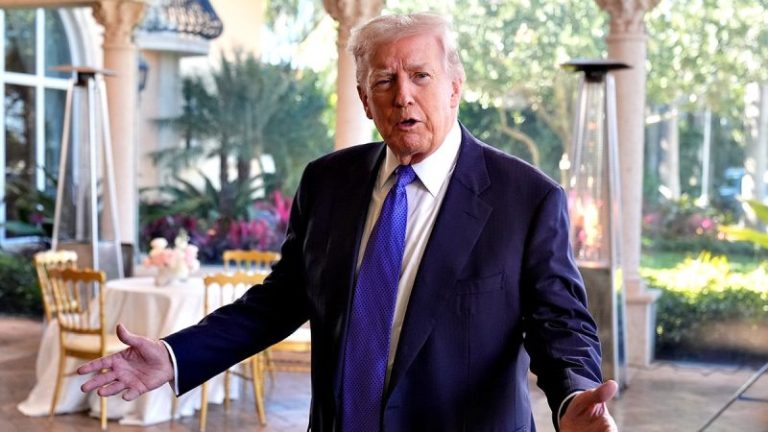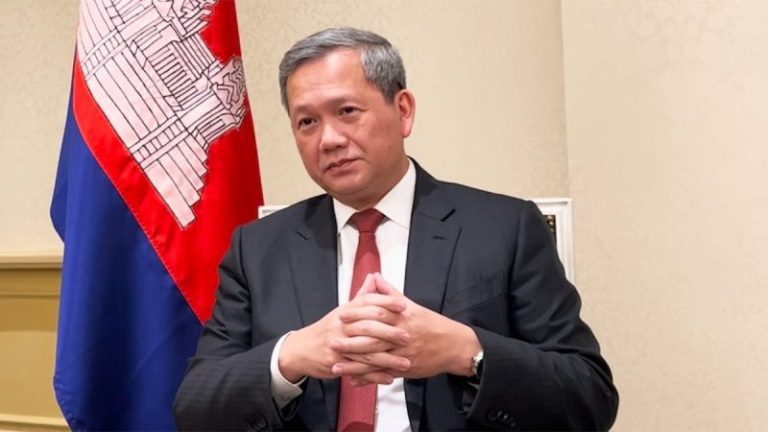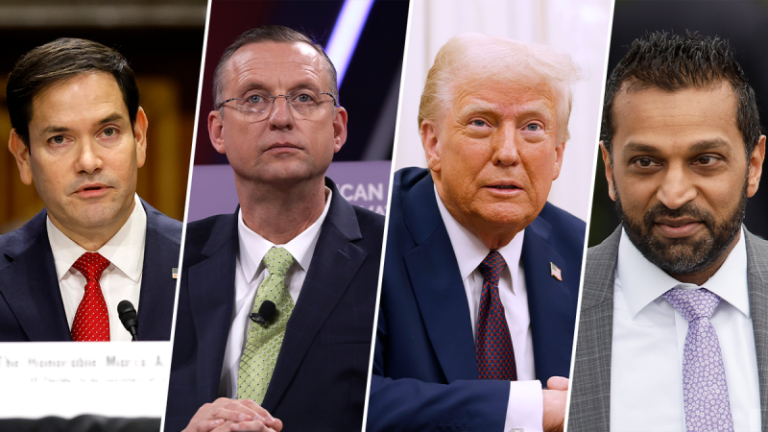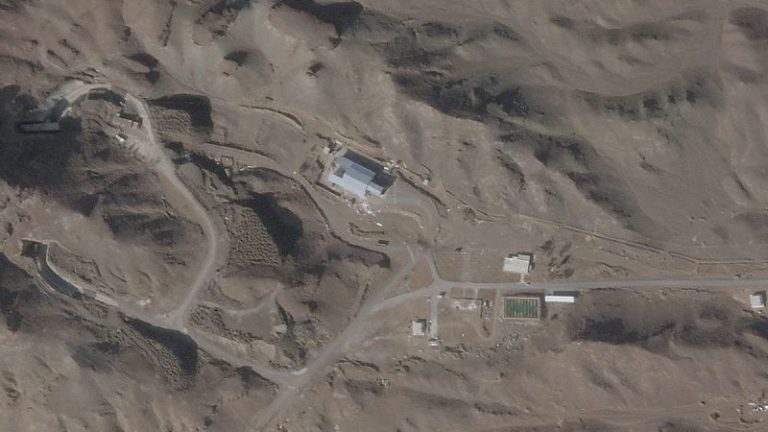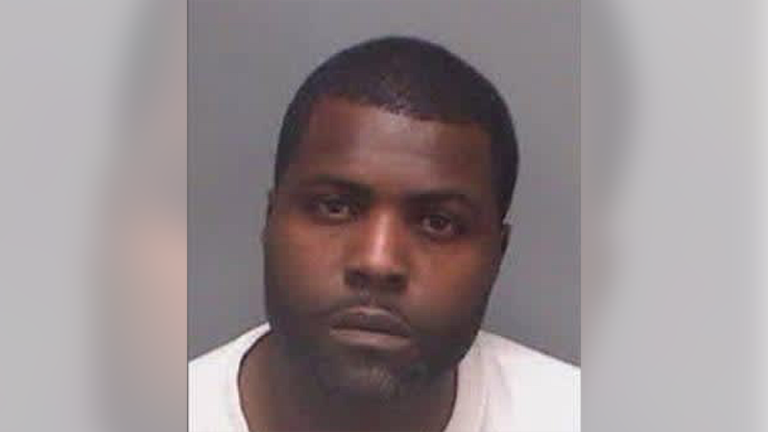The Trump administration has repeatedly assigned additional job roles to Cabinet members and other officials, and one of his top health officials is the latest to begin pulling double duty for the president.
On Wednesday, National Institutes of Health (NIH) Director Jay Bhattacharya became the latest Trump official assigned an additional role. The NIH chief and staunch COVID contrarian will temporarily run the Centers for Disease Control and Prevention (CDC) until a new permanent director is appointed by President Donald Trump and subsequently confirmed by the Senate, while continuing to lead the NIH.
Bhattacharya’s move to the CDC followed the departure of Jim O’Neill, who was also deputy secretary of the Health and Human Services Department amid a broader restructuring of the Trump administration’s public health agencies. O’Neill is now reportedly expected to lead the National Science Foundation.
Fox News Digital looked back on the various Trump Cabinet members and officials wearing multiple hats as the president adjusts during the second year of his second term.
Dr. Jay Bhattacharya
A physician, former Stanford professor of medicine and senior fellow at the university’s Institute for Economic Policy Research, Bhattacharya was a leading voice during the COVID-19 pandemic against lockdown measures and vaccine mandates.
He was one of the co-authors of the Great Barrington Declaration, a document published in October 2020 by a group of scientists advocating against widespread COVID lockdowns and promoting the efficacy of natural immunity for low-risk individuals as opposed to vaccination.
During Bhattacharya’s tenure, he has been forced to defend certain funding cuts tied to academic research and staffing. One of the core components Bhattacharya indicated that he wanted to pursue after his confirmation was to usher in a new age of ‘gold standard science.’
‘I think fundamentally what matters is do scientists have an idea that advances the scientific field they’re in?’ Bhattacharya said during his March confirmation testimony. ‘Do they have an idea that ends up addressing the health needs of Americans?’
Marco Rubio
Rubio and the Trump administration came under fire from Democrats for the secretary of state holding as many as four high-profile roles during the second Trump administration. As of today, he remains in two of those roles.
He was first confirmed as secretary of state hours after Trump was inaugurated, a role Rubio remains in today.
About a month later, amid a massive reorganization at the U.S. Administration for International Development (USAID), Rubio was named director and held that role until handing it off a few months later.
Around the same time, Rubio was tapped to be the acting archivist of the United States (NARA), a role he stopped serving in earlier this month.
Rubio does still serve as the interim national security advisor, a role he has held since May after the departure of Michael Waltz.
‘There’s no way he can do that and do it well, especially since there’s such incompetence over at DOD with Pete Hegseth being secretary of defense and just the hollowing out of the top leadership,’ Illinois Democratic Sen. Tammy Duckworth said of Rubio’s multiple jobs. ‘There’s no way he can carry all that entire load on his own.’
‘I don’t know how anybody could do these two big jobs,’ Democratic Virginia Sen. Mark Warner added.
When asked about the trend of Trump officials wearing multiple work hats in May, the White House reflected in a comment to Fox News Digital on former President Joe Biden’s ‘disaster of a Cabinet.’
‘Democrats cheered on Joe Biden’s disaster of a Cabinet as it launched the botched Afghanistan withdrawal, opened the southern border to migrant criminals, weaponized the justice system against political opponents and more,’ White House spokesperson Anna Kelly told Fox News Digital in May.
‘President Trump has filled his administration with many qualified, talented individuals he trusts to manage many responsibilities.’
The Trump administration has repeatedly brushed off concerns over Rubio holding multiple roles, most notably juggling both his State Department leadership and serving as acting national security advisor. Similarly, former President Richard Nixon in 1973 named National Security Advisor Henry Kissinger to simultaneously serve as Secretary of State.
‘You need a team player who is very honest with the president and the senior team, not someone trying to build an empire or wield a knife or drive their own agenda,’ an administration official told Politico. ‘He is singularly focused on delivering the president’s agenda.’
Despite Democratic rhetoric that Rubio was taking on too many roles, the former Florida senator helped oversee successful U.S. strikes on Iran in June, which destroyed a trio of nuclear sites and decimated the country’s efforts to advance its nuclear program.
Kash Patel
FBI Director Kash Patel, who railed against the ‘deep state’ and vowed to strip corruption from the federal law enforcement agency ahead of his confirmation, was briefly charged with overseeing the Bureau of Alcohol, Tobacco, Firearms and Explosives (ATF) in February after the Biden-era director resigned in January 2025.
Patel was later replaced by Secretary of the Army Daniel Driscoll as acting ATF director in a job change that was reported publicly in April.
‘Director Kash Patel was briefly designated ATF director while awaiting Senate confirmations, a standard, short-term move. Dozens of similar redesignations have occurred across the federal government,’ the White House told Reuters in April. ‘Director Patel is now excelling in his role at the FBI and delivering outstanding results.’
Sean Duffy
Duffy, a former Republican congressman from Wisconsin, was tapped to oversee the Department of Transportation and was confirmed by the Senate Jan. 28. Duffy has been forced to juggle a handful of crises related to tragic plane crashes, including the 2025 Potomac River midair collision and air traffic control issues that plagued New Jersey’s Liberty International Airport last year.
In July, President Trump announced Duffy would also serve as interim chief of NASA. Duffy remained in that position until mid-December, when commercial astronaut Jared Isaacman took over.
Prior to Trump’s inauguration in January 2025, the president announced he would be nominating Isaacman but withdrew his nomination in May before the full Senate confirmed him. Trump said the decision followed a review of Isaacman’s ‘prior associations,’ pointing to money he has given to Democrats.
However, Isaacman suggested at the time that the rescission of his nomination may have been due to his connections to Elon Musk, who was running the Department of Government Efficiency (DOGE) at the time.
Duffy replaced Janet Petro, who had served as acting NASA administrator since Trump’s inauguration.
Daniel Driscoll
Driscoll was sworn in as the 26th secretary of the Army in February. The secretary of the army is a senior-level civilian official charged with overseeing the management of the Army and also acts as an advisor to the secretary of defense in matters related to the Army.
It was reported in April that Driscoll was named acting ATF director, replacing Patel in that role.
‘Mr. Driscoll is responsible for the oversight of the agency’s mission to protect communities from violent criminals, criminal organizations, and the illegal trafficking of firearms, explosives, and contraband,’ his ATF biography states. ‘Under his leadership, the ATF works to enforce federal laws, ensure public safety, and provide critical support in the investigation of firearms-related crimes and domestic and international criminal enterprises,’
Ahead of Trump taking office, Republican representatives Eric Burlison of Missouri and Lauren Boebert of Colorado introduced legislation to abolish the ATF, saying the agency has worked to strip Second Amendment rights from U.S. citizens.
The ATF has been tasked with assisting the Department of Homeland Security in its deportation efforts under the Trump administration.
Driscoll remains listed as the agency’s acting director as of February 2026.
Doug Collins
Former Georgia Republican Rep. Doug Collins was sworn in as the Trump administration’s secretary of Veterans Affairs in February, a Cabinet-level position tasked with overseeing the department and its mission of providing health, education and financial benefits to military veterans.
Days after his confirmation as VA secretary, Trump tapped Collins to temporarily lead two oversight agencies, the Office of Government Ethics and the Office of Special Counsel.
The Office of Government Ethics is charged with overseeing the executive branch’s ethics program, including setting ethics standards for the government and monitoring ethics compliance across federal agencies and departments.
The Office of Special Counsel is charged with overseeing and protecting the federal government’s merit system, most notably ensuring federal whistleblowers don’t face retaliation for sounding the alarm on an issue they’ve experienced. The office also has an established secure channel to allow federal employees to blow the whistle on alleged wrongdoing.
The Office of Special Counsel also enforces the Hatch Act, which bans executive branch staffers, except the president and vice president, from engaging in certain forms of political activity.
Jamieson Greer
Trump’s trade representative, Jamieson Greer, has also been tapped for multiple roles within the administration, in addition to helping lead the administration’s tariff negotiations to bring parity to the chronic U.S. trade deficit with other nations.
Greer took on Collins’ roles as acting director of the Office of Government Ethics and as acting special counsel of the Office of Special Counsel April 1.
Trump nominated conservative attorney Paul Ingrassia to lead the Office of Special Counsel in May, but he subsequently withdrew his nomination amid concerns about his rhetoric and other accusations the young conservative was facing at the time.
Russell Vought
Trump named his former director of the Office of Management and Budget during his first administration, Russell Vought, to the same role in his second administration. Vought was confirmed as the federal government’s budget chief in February.
Days later, Vought was also named the acting director of the Consumer Financial Protection Bureau (CFPB), a position he still holds.
The CFPB is an independent government agency charged with protecting consumers from unfair financial practices in the private sector. It was created in 2010 under the Obama administration after the financial crash in 2008. Democratic Massachusetts Sen. Elizabeth Warren originally proposed and advocated for the creation of the agency.
The CFPB came under fierce investigation from the Department of Government Efficiency in February, with mass terminations rocking the agency before the reduction in force initiative was tied up in court.
Ric Grenell
President Donald Trump’s former ambassador to Germany and acting director of national intelligence during his first term, a pair of roles held at separate times in the first administration, currently serves as president of the Kennedy Center and special presidential envoy for special missions of the United States.
The John F. Kennedy Center for the Performing Arts serves as the national cultural center of the U.S. Trump notably serves as the center’s chairman, and Grenell said the center will see a ‘golden age’ of the arts during Trump’s second administration through productions and concerts that Americans actually want to see after years of the performing arts center running in the red.
Trump named Grenell his special presidential envoy for special missions to the United States in December 2024 before his inauguration, saying Grenell will ‘work in some of the hottest spots around the world, including Venezuela and North Korea.’
In this role, Grenell helped lead the administration through its response to the wildfires that tore through Southern California in the last days of the Biden administration through the beginning days of the Trump administration.
Fox News Digital’s Jasmine Baehr contributed to this report.
This post appeared first on FOX NEWS

